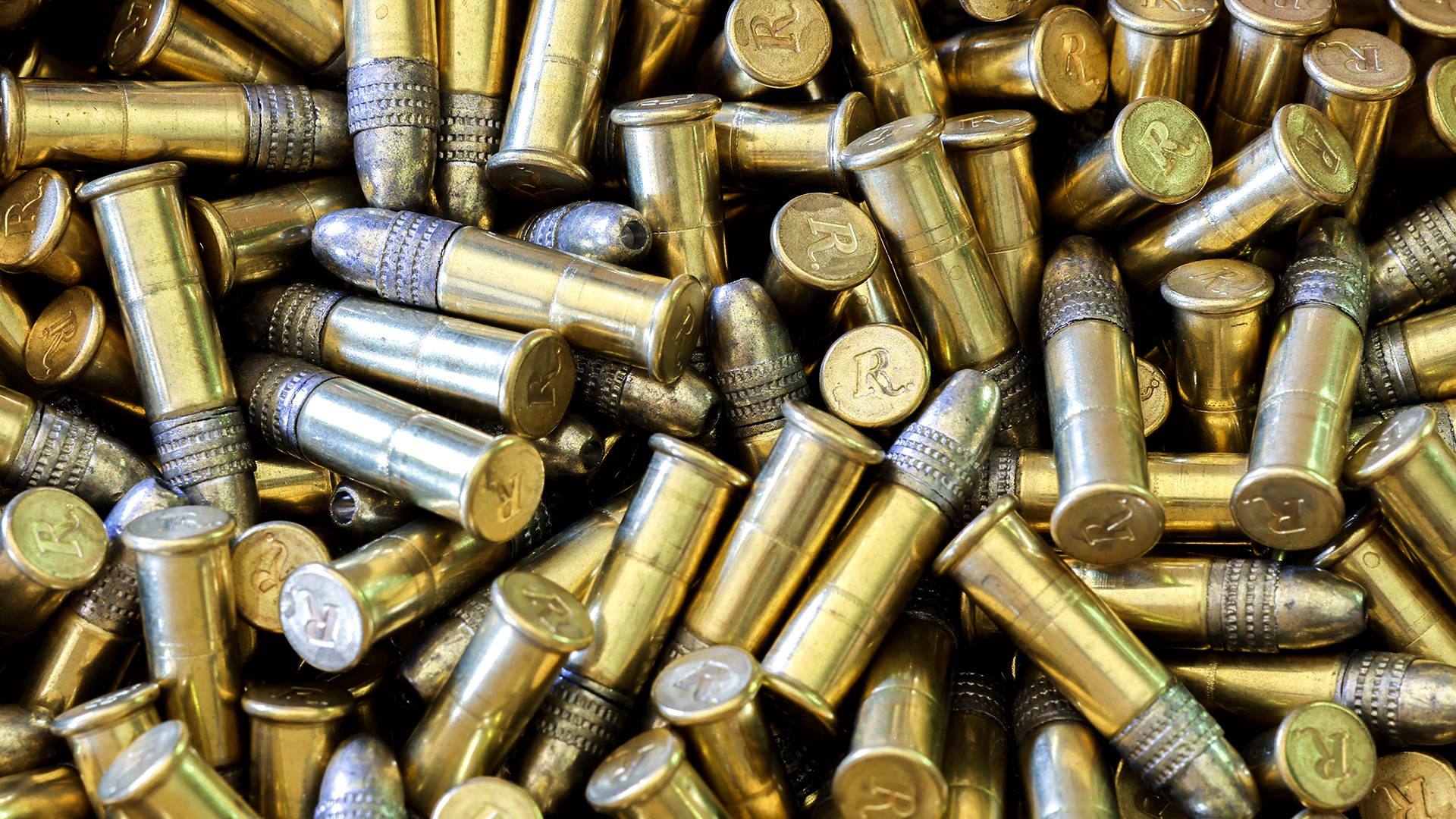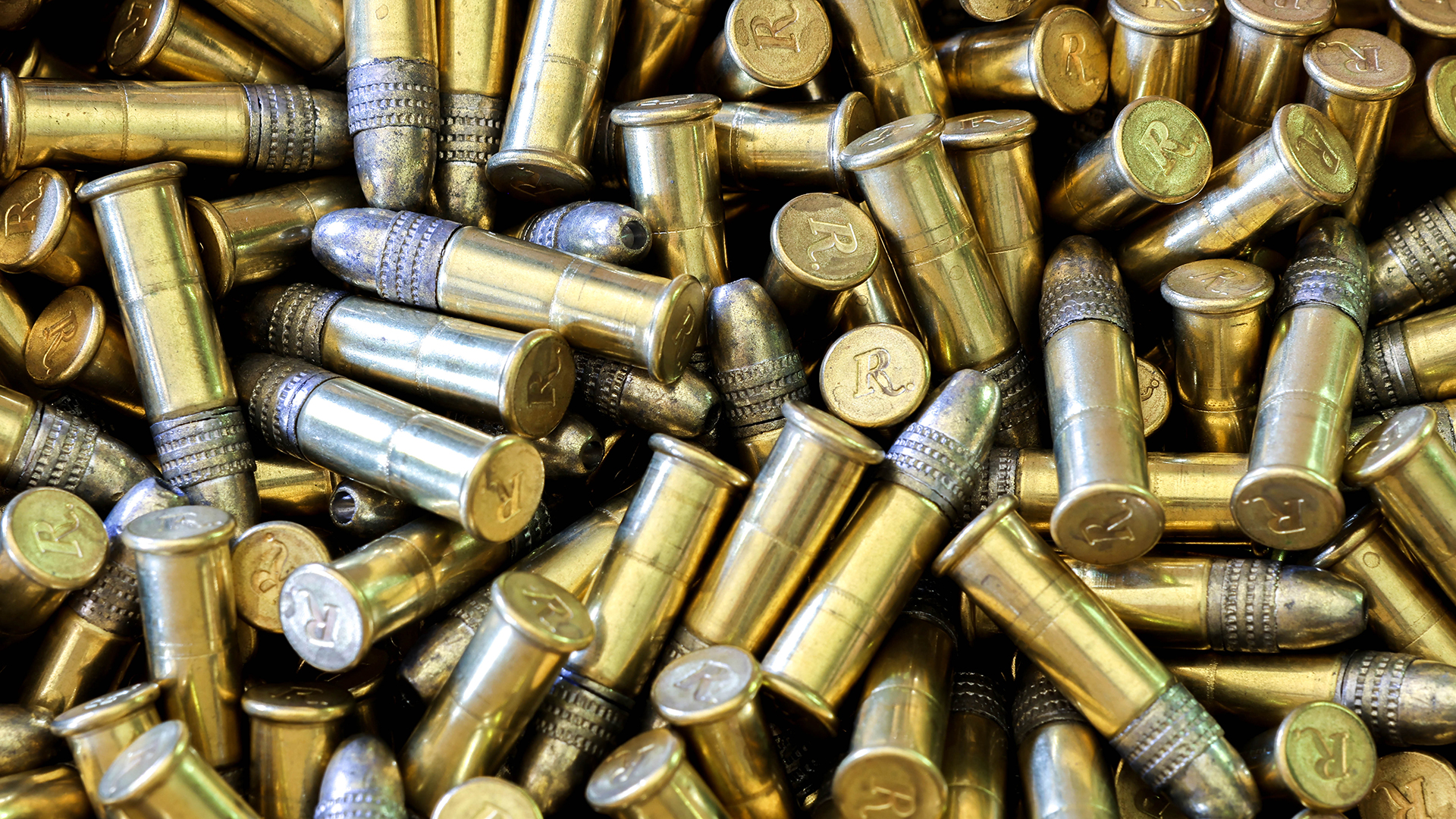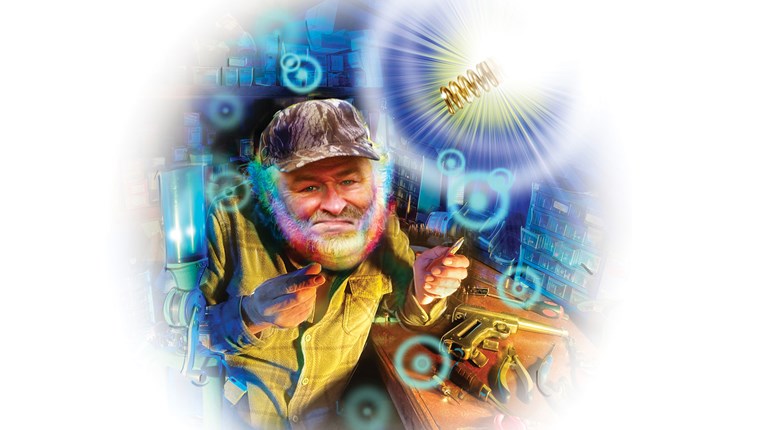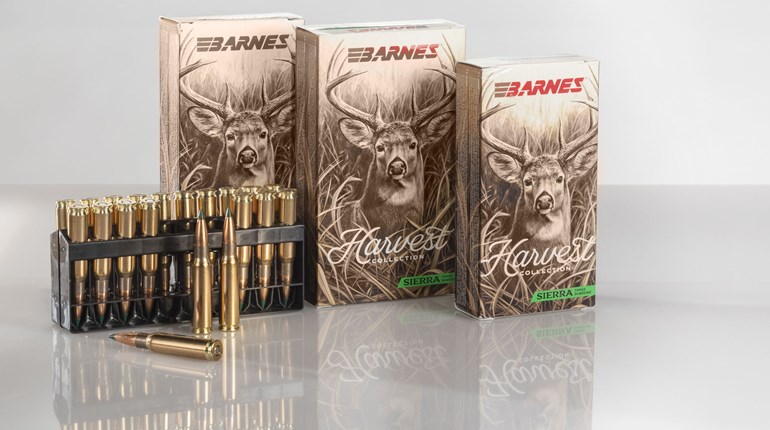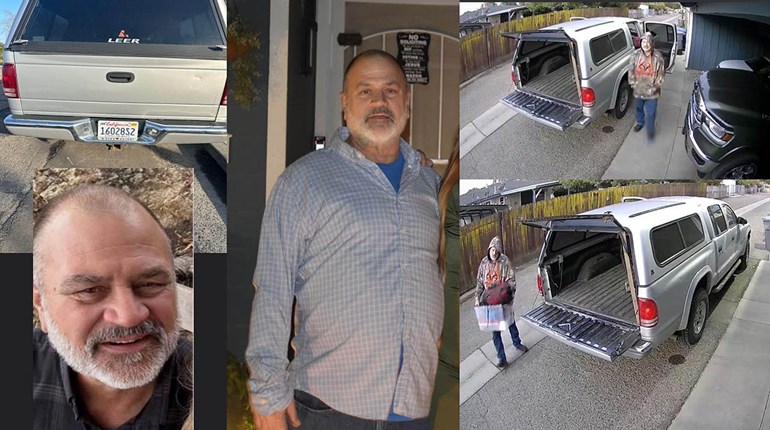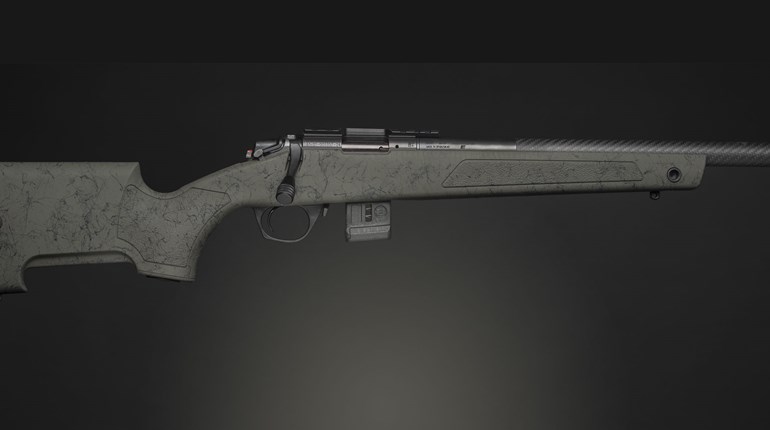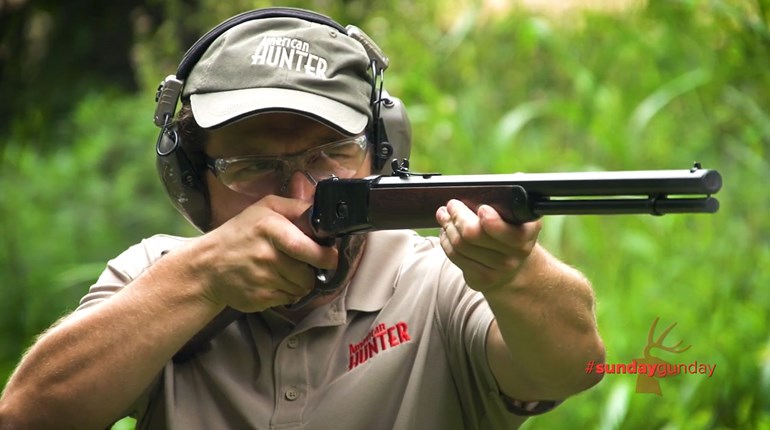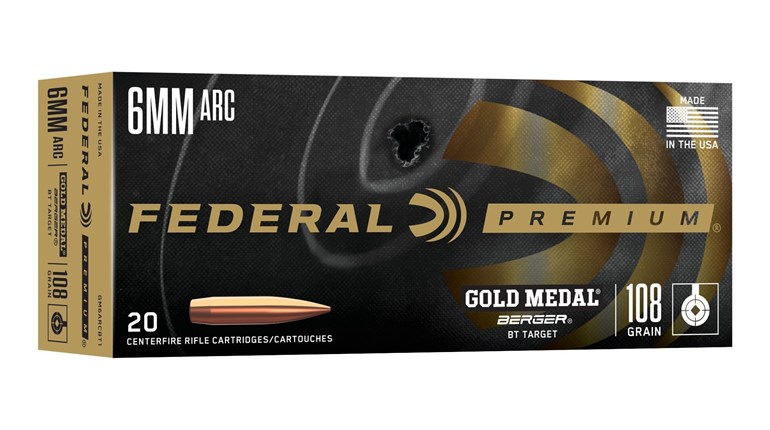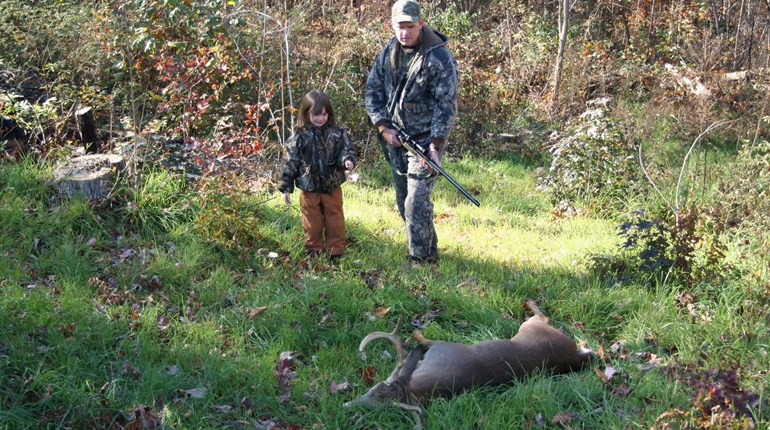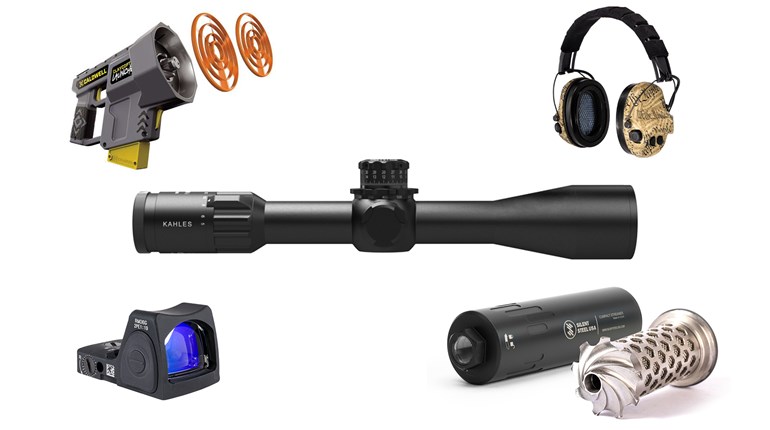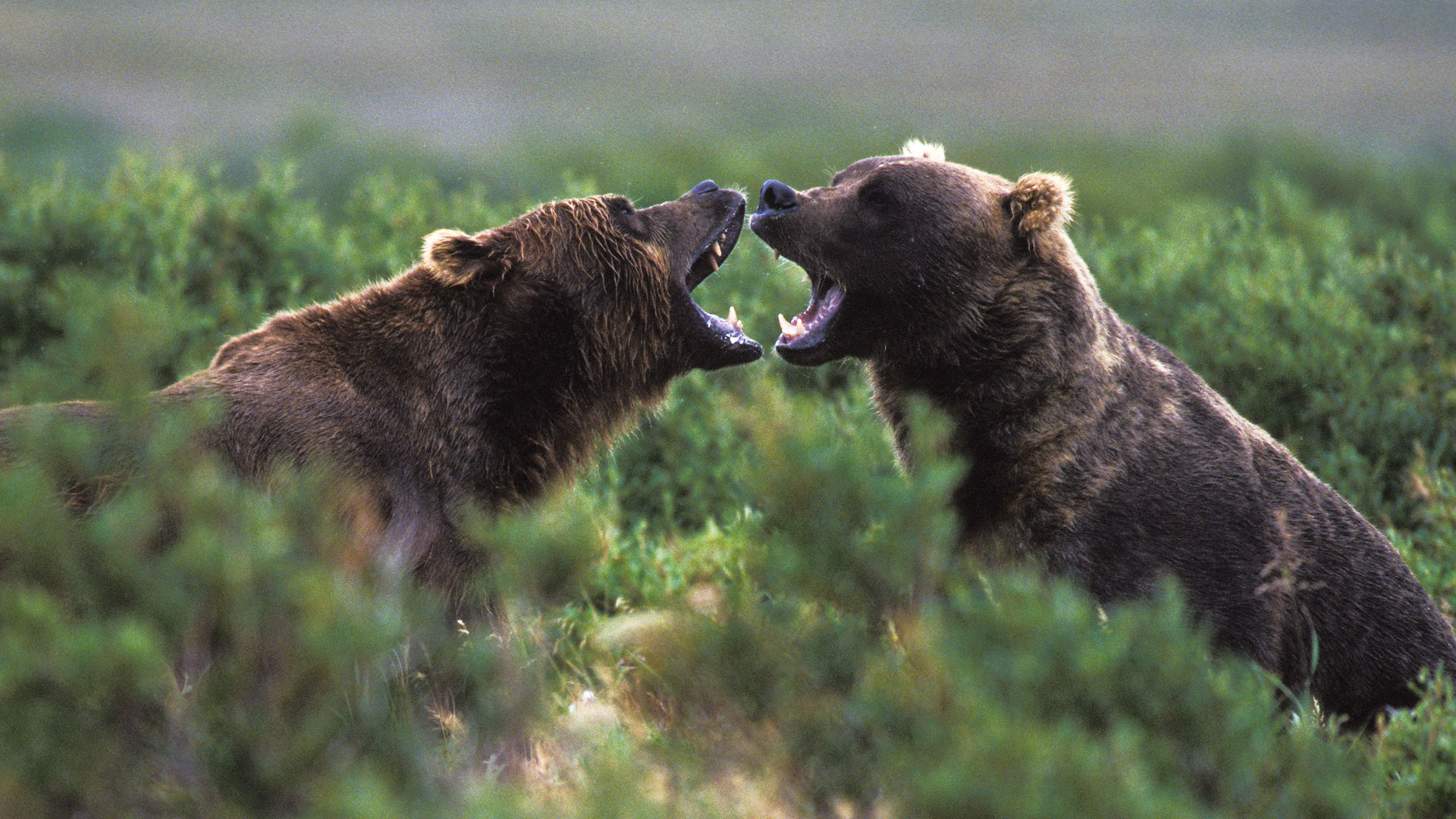
Everything about a brown bear hunt is just as magnificent as the great beasts themselves. There is the thrill of standing often in close proximity to the bears, the unbelievably breathtaking expanse of their home and the natural wonders found there, the scents and sounds, the relentless weather that always must be endured, all-too-seldom sunshine to be cheered and, if you’re lucky, a moment of truth up close and personal that tests mettle and marksmanship. Every little thing about a brown bear hunt is a wonder. Such is the beauty of the experience. Here in no particular order are several snapshots from one hunter’s journal. Read and wonder. Then book your own adventure.

‘Whack him!’
We let this bear get too close and now he was coming for us on a dead run.
He had been distracted by a female bear he was trying hard to breed, but she wasn’t interested. We used the distraction to move in a little closer and finally wound up behind a huge boulder that was about 10 yards from the edge of the woods. I decided that although he was a very good boar, he was not quite what I wanted.
It wasn’t long before the female had enough of this guy and she ran into the thick woods to find some peace. The boar watched her go and then turned down a worn path that would have him pass by us close enough to smell his breath.
Chris said, “We’d better let him know we are here.”
We stood up from behind the big rock as Chris slapped the top to get the bear’s attention before backing away behind me. The bear saw us and instantly broke into a run, straight for us.
That’s when Chris shouted, “Whack him!” I was perhaps a quarter of a second from shooting when Chris spoke and I saw something change with the bear. I let up on the trigger, just a little, and waited.
In an after-action analysis my guess was the bear saw the movement and thought we were the sow he had been chasing. I don’t think he wanted to eat us, but I do think he wanted to breed us. When Chris shouted the boar realized his mistake.
The boar stopped, close enough to feel the heat from him, looked at us for an exaggerated second and then let out a loud huff, which I think meant, in bearspeak, “Good thing I am a lover, not a fighter.” Then he turned and ran into the woods after the sow.

Today May Be the Day
After several delays and cancellations I am finally on a flight from Anchorage to the Alaska Peninsula. It’s windy with lots of turbulence and everybody on the flight, even those experienced with Alaska weather, is gripping their armrests tightly and grinding their teeth as the airplane is tossed about like a dog toy and stressed to its limits.
Sitting next to me is an old hippie with long gray hair. Although it’s October in Alaska and cold, he is dressed in shorts, sneakers and kneepads.
He doesn’t explain why he is wearing kneepads. His breath smells like fish as he calmly tells me that he expects to die in an airplane crash and that he is prepared to go anytime.

First Sight
The clouds split, with the smallest of cracks turning the sun into a spotlight. I look to my left and in the light is the first brown bear I will ever see. He is a huge boar and even from this distance I am awed by his size and the power in his presence. I watch the muscles in his shoulders ripple and bulge as he descends to the river.
It occurs to me that any hunter who sees one of these bruins like this and fails to question the wisdom of hunting him is a fool.

Wrecked
The wind has dropped a little by morning and we manage the hour-long Supercub flight into camp. The last flight of the day is late and the tide is high, stealing much of the already too-small gravel landing strip. Weight and wind joined the conspiracy and the plane ran out of space before crashing to a stop, tilted down into a hole, the right wing plowing grass and mud until the struts are bent. The tail wheel hit some rocks, which ripped it from the plane.
Nobody expected to hear from us for days. So, I guessed that this is where we would hunt.

Bust a Move
I had climbed high on this rocky precipice and hunkered down behind some rocks to get out of the cruel wind. Luc was with the gear, about 8 feet below me, like any young, tough Alaska bear guide, defiantly ignoring the wind. I had my eyes glued to my binocular when I heard him say, “Don’t move!”
My peripheral vision picked up a bear head right behind me. Not just any bear head, but one as big as a truck, with foot-long fangs, red eyes filled with murder and breathing fire out of nostrils that looked like road culverts.
Hey, I know what I saw, OK? Don’t doubt me.
“Not moving” was never an option. My instincts kicked in and I dove down the cliff to land beside Luc. I had made a mistake and left my rifle down there with him when I had climbed into my little hidey-hole to escape the wind. I landed beside my rifle and cranked a round into the chamber and pointed at the bear. Luc later commented that he was surprised how fast I could move, “You know, given your age and all.”
We measured from the rock where the bear’s front feet stood to where I was sitting: 7 yards! That put his nose less than 6 yards from the back of my head. It’s a wonder my hat didn’t get charred.

Another Day Lost
The river has whitecaps from the wind, and when we reach the bay it’s a vast expanse of roiling water. We pound through the surf for what seems like hours, but the jet-powered, flat-bottom skiff is not made for this. With every wave we hit, the spray impacts our faces with power enough to sting. The salt is burning my eyes and the cold water is filling my hip boots. It pours in around the opening at my neck, drenching my torso, and my gloves are soaked. I love the water and have been around boats all my life. Not much about it scares me, but after a while it occurs to me that we could die here.
We decide to try for an abandoned cabin on the other shore and turn to run with the wind until we enter a small sheltered bay. The cabin is a shambles and the bears have ripped off one wall. There is no heat and little food in our pockets. I have some candles in my backpack and Wayne has a small piece of ham and some cheese left from lunch, but there was no romance in our meager “candlelight dinner.”
The temperature is near freezing as I wring out my wool shirt and put on a sweater and a fleece pullover from my pack. Everything is wet. My boots are full of water and my socks are soaked, so I am barefoot. At first I think it’s going to be OK, but the night soon turns even colder. I lie under my space blanket and try not to think about how cold my feet are or how long it is until daylight. The space blanket forms its own weather system as it collects the moisture rising off me and condenses it into drops of water that fall back on me all night long.
Finally at 6:30 a.m. we are all just too cold, so we give up and decide to try to get back to camp. Daylight doesn’t arrive at this latitude until 9 and we are running in the dark. It’s still very rough and the spray is hitting me in the face like birdshot. With each wave we hit, a sheet of water covers us and phosphorescent organisms sparkle briefly throughout the boat and on our clothing like stars scattered in the dark. When I turn and look, the wake behind the boat is glowing white with them.
It’s harder on the body pounding through the waves in the dark because you can’t see them coming. You can sometimes feel the boat enter the void before it hits, but usually you can’t and you're surprised when it hits. Each impact takes my wind, hurts my back and clashes my teeth together. Twice I bite my tongue and the taste of blood mixes with the salt water. My knitted hat is soaked and with each bump it falls over my eyes. It’s aggravating to the point of madness, but it’s too cold to take it off.
After a very long time we make it to the camp. We hang up our wet gear, go to bed and lose yet another day of bear hunting.

The Way to a Hunter’s Heart
A boat-based hunt is perhaps the most civilized of brown bear hunts. You return at night to a warm, dry place to sleep rather than a waterlogged tent. There is a galley to prepare hot food, as opposed to tasteless, homogenized, freeze-dried backpacker’s rations. The “camp” is mobile so you can easily move locations if the hunting is slow and, unlike with an airplane, you can hunt the day you move, or even hunt as you move. But the best thing about any boat-based hunt is the fresh crabs.
When I first talked to Chris he said, “I’ll get you a good bear.”
“I know that,” I said. “I checked you out. But what I want to know is if there will be any crabs to eat?”
I made sure to tell him that I had done several other coastal hunts where they promised fresh crabs and never delivered.
“I will feed you crabs until you beg for mercy,” Chris replied.
If there is a heaven it has to include sitting on a sun-warmed rock in springtime Alaska, eating fresh Dungeness crab dipped in melted butter and glassing for brown bears. I suppose it’s possible I could tire of that, but not in 12 days. Come on, let’s be realistic!

Stranded
On the fourth day the weather breaks a little and we head the jet boat into the rain. At last we are going hunting. After a long run across this bay we head for the mouth of the river, but it’s late morning and the tide is out. The outfitter and the guide are having a heated discussion about where the channel is located. Finally the guide makes his point when he notices that a seagull we just passed was standing up.
Seconds later we run aground, a half-mile from shore. We have no choice but to wait in the rain and bitter wind until the tide returns. Hours later we wrestle the boat to the channel where, exhausted, we tumble in and head for the river.
There are sea otters close to the boat and salmon trying to get through shallow water. Huge flocks of ducks rise into the sea of wind as we approach. Once we are in the river big flocks of white ptarmigan spook at our approach and fly in formation only to land upriver and then spook again when we close the distance.
There are places all along the river where bears have dug deep into the dirt banks to pillage the homes of bank swallows. Often we see deep, clear paw prints in the vertical riverbanks as if the bear swatted the mud for the sheer joy of swatting mud.
The sandbars and riversides are littered with old salmon skeletons and we pass a bull moose who stares unafraid at the interlopers. The water swirls in a deep pool and when we slow down to see why a seal’s head rises out of the surface. We stop the boat and dozens more heads pop like corks until suddenly we are surrounded by seals.
For a while it’s wonderful.
Then the jet motor sucks some gravel off the bottom and plugs the cooling system.

Spitting Distance
We were several days into a spring brown bear hunt and I am not sure how many bears we had seen at this point, but it was a bunch. That included one large bear that came uncomfortably close. Close enough to reach out and touch with my rifle barrel had I been inclined. It was a good bear, but not quite good enough, so I never raised my gun. He walked off, never knowing we were there.
I can tell you that an Alaska brown bear standing at spitting distance is an imposing presence. If your heart doesn’t pound, it’s probably not beating at all.

A Friend Joins Us
There is a splash and I look over the boat rail expecting to see yet another seal. Instead there is a killer whale just a few yards away. It surfaces, splashing water onto the deck and then dives again. It comes up on the other side of the boat and again breaks the surface with a huge splash. It swims just under the surface back and forth a few feet behind the boat, giving us a show. When I notice the look on Chris’ face, it occurs to me that I should probably be scared.

Wracked
In the spring at that latitude, twilight lasts for hours, and it was getting hard to see deep into these bays. I don’t remember who spotted the bear, but I think it was Chris. We stopped the Icy Lady and glassed deep into the backside of the bay where a bear was feeding on the plants exposed by the low tide. We were running out of time so Lucas and I jumped into a skiff and ran hard to the backside of the closest finger of land. From there we power marched through the exposed seaweed for more than half a mile. They call the stuff “pop weed.” It is a brown algae seaweed with the scientific name of Fucus vesiculosus. It has paired air bladders within the blades that “pop” like bubble wrap when they are stepped on, making a sneaky approach a bit tough. Not only noisy, the stuff is slippery and tangles your feet at the same time. Walking on it tires your ankles and knees very quickly. Also called “bladder wrack,” it is said to have medicinal qualities, but at the moment I pretty much just hated it.

‘Like a Kite on a String’
The Supercub is airborne almost as soon as it moves and the crosswind quickly twists it to a 45-degree angle as it’s batted around in the wind like a lost newspaper. I stand on the runway and watch the plane climb in a succession of sudden jumps like a kite on a string, moving up faster than forward.
They fly around several mile-high waterspouts and encounter strong winds as they try to cross the mountains. Even under full power they have a ground speed of only 25 mph and lose 2,500 feet of altitude in less than a minute. Clearly we were not going to bear camp today.

‘I hit him again.’
It was extremely still as we moved past the last of our cover. We stopped to glass and Lucas said he could hear the bear ripping up the sea grass and chewing it. I knew that if he could hear the bear, the bear could hear us.
Finally I heard the words I had been longing to hear for 10 days: “I think this is a bear we should take.” He looked big to me, but I have been fooled before. Every other time Lucas let me make the decision to shoot or not shoot. This time it was different.
The light was leaving fast and the bear was perhaps 25 feet from some of the thickest coastal brush on earth. The last thing I wanted to do was track a wounded brown bear in the fading light in a place where visibility is measured in inches.
At the shot, the bear dropped. I worked the bolt fast and before I was done he was up. I hit him again. Then twice more, shooting fast, hoping I could anchor him there. With the last shot he dropped. The gun held five rounds, I had shot four and held the last in reserve as I watched him through the scope, but it was over.
I reloaded and we approached. He looked small, as dead bears often do when you first walk up on them, and my stomach started to boil. Had we missed the call? Lucas wasn’t saying much, which I took as a bad sign.
I waited until I couldn’t stand it anymore and I quietly said, “Tell me what we have here.” He hesitated and I was beginning to dread his answer.
He finally replied, “I think this might be the biggest bear we have ever taken.”

Wonders
I sat numbly in the boat and watched a river flowing backwards. So many days of hard rain had fed the high stream until it had grown into something larger and at a point near the top of the mountain it cascaded over a cliff into what should have been a hundred-foot drop. But the wind was blowing so hard the water defied gravity. Rather than a waterfall, I was looking at a river that was flowing straight up off the top of the mountain like a giant geyser raising high into the atmosphere.






